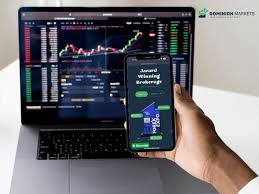

In recent years, forex trading has gained tremendous popularity around the world as a means of investment and income generation. However, for Muslim traders, a pertinent question arises: is forex trading halal or haram? To answer this question, we need to delve into the principles of Islamic finance and the guidelines that govern permissible financial practices. In this article, we will explore the nuances of forex trading, highlight opinions from Islamic scholars, and examine various components of trading that could classify it as halal or haram. If you want to get started with trading, you can visit forex trading halal or haram https://trading-terminal.com/ for more information.
Understanding Halal and Haram in Finance
In Islamic finance, the terms halal (permissible) and haram (forbidden) are crucial in determining what financial practices are acceptable for Muslims. Generally speaking, any activity that involves excessive risk (gharar), speculation, or interest (riba) is considered haram. On the other hand, activities that promote economic welfare, transparency, and fairness may qualify as halal.
The Basics of Forex Trading
Forex trading involves the exchange of one currency for another in a decentralized global market. Traders speculate on currency price movements, aiming to buy low and sell high to make a profit. The forex market operates 24 hours a day, and it is known for its high liquidity and volatility. Given these characteristics, it’s essential to analyze how forex trading aligns with Islamic principles.
Key Islamic Principles Affecting Forex Trading
To ascertain whether forex trading is halal, we must examine several Islamic principles:
1. The Prohibition of Riba (Interest)
Riba, or usury, is strictly prohibited in Islamic finance. This includes not only paying interest but also receiving it. When it comes to forex trading, many brokers offer leverage and margin accounts, which can sometimes involve paying interest on borrowed funds. If a trader is engaging in a trading practice that involves significant interest payments, this would render the activity haram.
2. The Prohibition of Gharar (Excessive Uncertainty)
Gharar refers to excessive uncertainty and ambiguity in contracts. It is important that all terms and conditions in a financial transaction are clear. In forex trading, speculation is a fundamental aspect; hence, if the trade involves a high level of uncertainty and gambling-like characteristics, it could be classified as haram. However, if a trader uses analysis and knowledge to make informed decisions, the level of gharar may be minimized.
3. Ensuring Tangibility in Transactions
Islamic finance promotes real economic activities and the trading of tangible assets. Forex trading involves the exchange of currencies, which can be considered tangible. However, if traders engage in excessive speculative practices—buying and selling currencies without real economic backing—this may not align with Islamic principles. The focus should remain on genuine currency trading rather than mere speculations.
4. Time Factor and Immediate Settlement

In Islamic finance, immediate settlement of transactions is encouraged. In conventional forex trading, some transactions may involve deferred settlements. To ensure compliance with Islamic law, traders should seek platforms that allow for immediate execution or settlement of trades without interest implications.
Scholarly Opinions on Forex Trading
The views of scholars on forex trading vary significantly. Some scholars argue that forex trading is generally halal if conducted within specific guidelines, while others maintain it is entirely haram due to the inherent risks involved. It is essential for traders to consult with knowledgeable scholars and follow guidance in accordance with their beliefs.
Strategies for Halal Forex Trading
If you are a Muslim interested in forex trading, here are some strategies to ensure your trading practices align with Islamic principles:
1. Choose a Halal Trading Platform
Look for brokers that offer Islamic accounts, which do not involve interest charges or swaps. Several platforms cater explicitly to Muslim traders, providing options that comply with Sharia law.
2. Practice Risk Management
To minimize the risk of gharar, employ risk management strategies such as setting stop-loss orders or limiting your exposure to any single trade. Make informed decisions based on thorough technical and fundamental analysis.
3. Focus on Long-term Investments
Rather than day trading or speculative practices, consider adopting a long-term investment strategy. This approach aligns more closely with the principles of Islamic finance and reduces the element of speculation.
Conclusion
In conclusion, the question of whether forex trading is halal or haram is nuanced and can vary based on individual practices, intentions, and the adherence to Islamic principles. By understanding the foundations of Islamic finance and ensuring compliance with its tenets, Muslim traders can navigate the forex market responsibly. It is advisable to seek guidance from knowledgeable scholars and remain educated about the evolving landscape of forex trading. Ultimately, the choice should be made in line with one’s beliefs and values.
Whether you’re a novice or an experienced trader, understanding the religious ramifications of your trading activities can provide peace of mind and assurance in your investment decisions. Always ensure that your trading practices are ethical, transparent, and aligned with Islamic teachings.





















